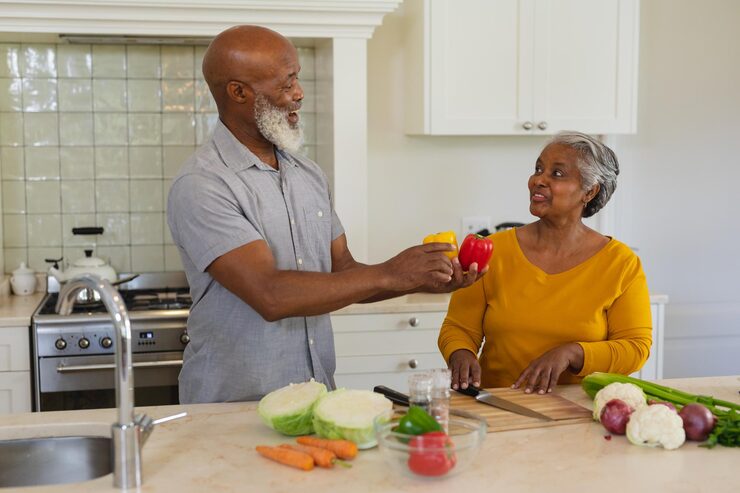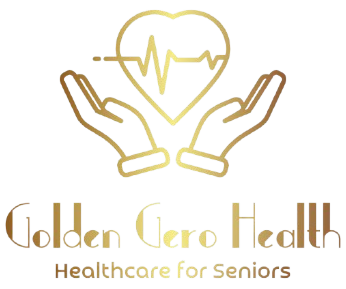Book Appointment Now

Eating well is one of the most important ways to stay healthy as we age. A good diet helps keep bones strong, the heart healthy, the brain sharp, and energy levels up. However, there are many misunderstandings about food and nutrition in older adults. Some people believe they need fewer nutrients as they age, while others think special supplements are required to stay healthy.
As a geriatrician, I want to share five key facts and five common myths about diet and nutrition in older adults.
🔹 5 Facts About Diet and Nutrition in Older Adults
- Nutritional Needs Change With Age
As we grow older, the body needs fewer calories but still requires high-quality nutrients. This means older adults should focus on eating more protein, fiber, healthy fats, vitamins, and minerals while avoiding empty calories from processed foods.
- Protein is Essential for Muscle Strength
Aging causes muscle loss (sarcopenia), which increases the risk of falls and frailty. Eating lean meats, fish, eggs, dairy, beans, and nuts helps maintain muscle strength. Protein intake is just as important for older adults as it is for younger people.
- Hydration is Just as Important as Food
Many older adults drink less water, leading to dehydration, constipation, and confusion. Thirst signals weaken with age, so it’s important to drink plenty of fluids even if you don’t feel thirsty. Water, herbal teas, and soups are good options.
- Fiber Helps Digestion and Heart Health
Constipation is common in older adults, but eating fiber-rich foods like whole grains, fruits, and vegetables helps maintain a healthy digestive system. Fiber also lowers cholesterol and blood sugar levels, reducing the risk of heart disease and diabetes.
- A Balanced Diet Can Reduce the Risk of Dementia
Eating a Mediterranean-style diet rich in fruits, vegetables, nuts, olive oil, and fish has been linked to better brain function and a lower risk of Alzheimer’s disease. Food plays a big role in maintaining mental sharpness as we age.
🔻 5 Common Myths About Diet and Nutrition in Older Adults
- “Older Adults Need Less Food, So They Can Eat Whatever They Want”
❌ Myth: Since metabolism slows down, older adults can eat whatever is convenient.
✅ Truth: While calorie needs decrease, nutrient needs remain high. A healthy diet is even more important to prevent disease and maintain strength.
- “Dairy Should Be Avoided Because It’s Hard to Digest”
❌ Myth: Older adults should stop drinking milk and eating dairy.
✅ Truth: Dairy provides calcium and protein, which are crucial for bone health. If lactose intolerance is an issue, try lactose-free dairy, yogurt, or plant-based alternatives with calcium.
- “Salt is the Only Thing That Affects Blood Pressure”
❌ Myth: Cutting salt is the only way to control high blood pressure.
✅ Truth: Reducing salt helps, but potassium-rich foods like bananas, spinach, and beans also help lower blood pressure. Maintaining a balanced diet with less processed food is key.
- “Older Adults Don’t Need to Worry About Vitamin Deficiencies”
❌ Myth: If you eat regular meals, you get all the vitamins you need.
✅ Truth: Older adults are at higher risk of vitamin deficiencies, especially vitamin D, B12, and calcium. A balanced diet or supplements may be needed based on a doctor’s advice.
- “Losing Weight is Always a Good Thing in Old Age”
❌ Myth: If an older person is losing weight, it’s a sign of good health.
✅ Truth: Unintentional weight loss can be a sign of poor nutrition, illness, or muscle loss, which increases frailty. Sudden weight loss should be discussed with a doctor.
Final Thoughts: Eat Well for a Healthier Life!
A balanced diet helps keep older adults strong, independent, and healthy. Here are some key tips:
✔ Eat a variety of colorful fruits and vegetables
✔ Choose lean proteins like fish, chicken, beans, and nuts
✔ Stay hydrated with plenty of water
✔ Limit processed foods, salt, and added sugars
✔ Get enough calcium and vitamin D for strong bones
Good food is good medicine! 🥗🍎🥩 Keep eating well to enjoy a longer, healthier, and more active life.

